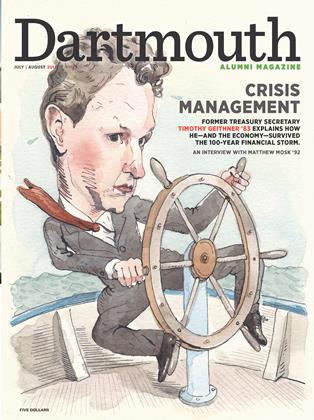For mAnY PeoPLe A donkeY And A PLoW ProbAbLY don’t seem like much in the way of worldly belongings. For Cohen these seemingly rudimentary possessions represent economic opportunity—and a way to escape the food inse- curity and famine that affect nearly 1 billion people around the globe. As the chief operating officer for Episcopal Relief and Development (ERD), the international aid arm of the Episcopal Church, Cohen has helped spearhead the orga- nization’s donkeys With Plows program in Ghana, which helps small-scale female farmers obtain microfinance loans that allow them to purchase a donkey, plow and a cart, with the idea that these tools will help the women boost their incomes and feed their families. “it doesn’t sound particularly innovative,” cohen says. “That is, until you have been to Ghana and seen that the vast majority of small farmers are still using hand tools—it’s almost Stone Age.”
Since joining the New York City-based organization in 2004 Cohen has helped expand its mission to promote sustainable community development to fight poverty, hun- ger and disease worldwide, managing the growth of the annual budget from $9 million to $23 million and direct- ing a staff of more than 50 people working in 40 countries around the globe. “We look at what skills and what assets a community has and how they can use those strengths for long-term development,” she says. “The solutions that are developed have a real local urgency, and that makes them more sustainable.”
The role has come as a bit of a surprise for Cohen, a drama and French major who received an M.F.A. in arts administration from Columbia University and spent 20 years working in theater management. “if you had told me when I was working in theater that I would be going to look at donkeys and plows in Africa, i would have laughed,” cohen says. “having a liberal arts education and not know- ing when to say ‘no’ to things really makes life exciting.”
Cohen’s secret weapon to fight poverty? Donkeys.
 View Full Issue
View Full Issue
More From This Issue
-
 FEATURE
FEATUREPar for the Course
July | August 2014 By RICK SHEFCHIK ’74 -
 Feature
FeatureSea of Dreams
July | August 2014 By JAMES ZUG ’91 -
 THE DAM INTERVIEW
THE DAM INTERVIEWCrisis Management
July | August 2014 By Matthew Mosk ’92 -
 PERSONAL HISTORY
PERSONAL HISTORYNothing In Common
July | August 2014 By LYNN HOLLENBECK ’83 -
 RETROSPECTIVE
RETROSPECTIVEOpportunity Knocks
July | August 2014 By CHARLES DEY ’52 -
 CLASSROOM
CLASSROOMWall Papers
July | August 2014 By LISA FURLONG










